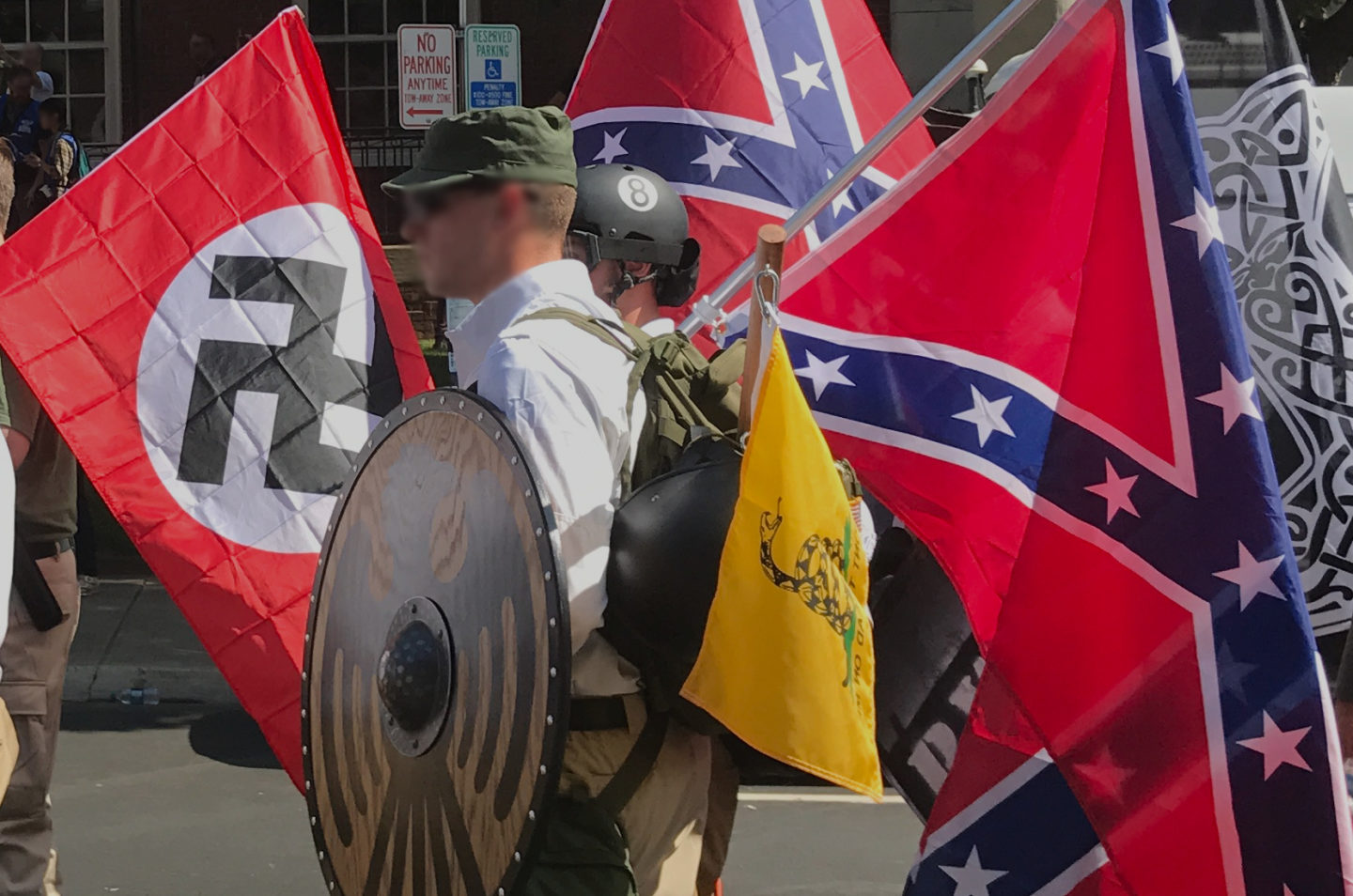An expert on neo-Nazis who was a lead prosecution witness at two landmark terror trials in Scotland has warned there could be more ‘lone wolf’ attacks when political tensions are high.
Professor Matthew Feldman, director of the Centre for Analysis of the Radical Right, advises states on lone wolf terrorism and has provided testimony at six UK terrorist trials in recent years.
They include four major trials down south involving the banned neo-Nazi group National Action, which had an offshoot called Scottish Dawn, also proscribed under anti-terror legislation.
Professor Feldman also testified at two trials held at the High Court in Edinburgh after examining evidence collected by Police Scotland.
The first case involved Connor Ward, a 25 year-old neo-Nazi from Banff who was jailed for life in April 2018 for plotting attacks on mosques in Aberdeen.
Ward was found guilty of breaching the Terrorism Act 2000 and the Terrorism Act 2006 after the court heard he acquired components for bombs and an arms cache which included a stun gun, knuckle dusters, knives and metal bars.
Far-right Scots vlogger named in report on YouTube extremist networks
Professor Feldman also testified at the trial of Peter Morgan, a 35 year old member of the Scottish Defence League, who was jailed for 12 years last August after being found guilty of two charges under the Terrorism Act and one charge under the 1883 Explosive Substances Act.
Morgan’s flat was deemed a bomb factory by police who also found a Ku Klux Klan application form and an Al Qaeda terrorism manual.
Professor Feldman described both Ward and Morgan as “lone wolves” and said that individuals radicalised online who are intent on committing acts of terror are an increasing threat globally.
He described Ward as “someone who was very isolated” and downloaded an enormous amount of extremist material and information on bomb-making.
“Clearly he was someone who veered towards the neo-Nazi spectrum – the so-called Blood and Honour-Combat 18 movement,” Professor Feldman said adding that Ward had a “Combat 18 mosque address book” identifying targets around Aberdeen. Ward was also gathering weapons that could have been used to commit acts of terrorism.
Morgan was interested in all sorts of far right groups including the SDL and Britain First, although Professor Feldman said he “didn’t have a strong and consistent kind of ideology that we saw in the case of Ward.”
“He (Morgan) looked like he was searching for an ideology or a form of radical right extremism that would work for him,” Professor Feldman added.
What links the two men though is that both were “self-directed” or “self activated” terrorists, Professor Feldman continued, explaining that he prefers to use those descriptions as he considers the term “lone wolf” as “sort of valourising”.
He continued: “Although very different they had all the hallmarks of online radicalisation, going down the rabbit hole towards more extreme solutions that they took upon themselves, or were maybe in the process of taking it on themselves. And I think that’s one of the real concerns, the sort of do-it-yourself type extremists.”
“Loner type extremists, and that’s a problem we’re not just seeing in Scotland but trans-nationally. I do think that’s something we’re seeing time and time again – individual, otherwise isolated activists, who are being radicalised online (and) basically turn to political violence or even the possibility of terrorism.”
Professor Feldman said that last year in the US ahead of the midterm election there were four lone wolf attacks by people who were apparently influenced by far right ideology. They included the synagogue massacre in Pittsburgh last October when 11 people were killed.
That same month a series of pipe bombs – 19 suspicious packages in total – were sent to prominent Democrats and critics of Donald Trump, while two African-Americans were shot dead in Kentucky by a man who reportedly said, “whites don’t kill whites”. In another attack last November a far right extremist and misogynist called Scott Beierle killed two women in a yoga studio in Florida.
Professor Feldman believes these US attacks shared two things that are highly relevant to everyone.
“The first is that at some point when there is a heightened political atmosphere, some people who are at the cliff, can be pushed over that edge. Clearly we saw that in the lead-up to that midterm election,” he said.
“But what really links them all – that nobody is talking about – is that they were all quote/unquote ‘lone wolves’ – every single one of them. They went through this terrorist or political violence attack cycle by themselves.
“That is now the preferred modus operandi of attack for extreme right wing people engaged in political violence. We’ve seen it, obviously going back 20 years to David Copeland in 1999 in London, and we saw a number of different attempts in Scotland in recent years as well.”
A version of this report was published by The Sunday Post on 16th June 2019.
Photo thanks to Anthony Crider, CC BY-SA 2.0.















You can expect much more resurgence of Nazi activity in Scotland, when the government is also Nazi! (SNP)